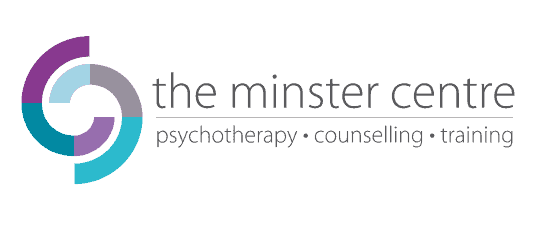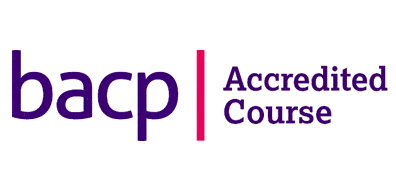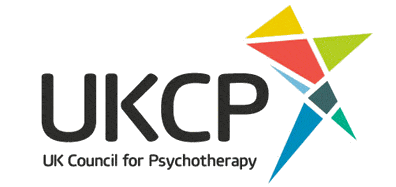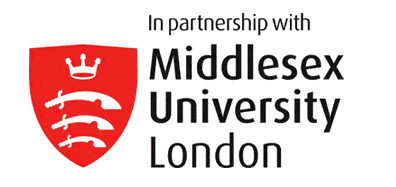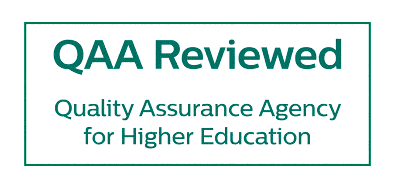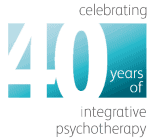About the Course
Successful completion of the Diploma in Integrative Counselling qualifies students to practice as an Integrative counsellor, supports BACP Registered Membership and is the first step to obtaining BACP accreditation. If students successfully complete the first two years of training they can also apply to continue on to the MA/Advanced Diploma.
The course provides for an intensive development of counselling skills and a deeper understanding of the theoretical frameworks and concepts underpinning different counselling approaches, leading to an integration of these into sound counselling practice. The Integrative approach encourages people to find their own voice and identity as counsellors. The Minster Centre has a long tradition of social commitment and our training syllabus reflects this, with students encouraged to reflect on issues of diversity and society as part of their work.
The course will cover humanistic, existential, psychodynamic and body work approaches to counselling. Over three years students mix teaching, experiential learning, group discussion, practical application and microskills exercises with relevant theory. As well as being grounded in the traditional approaches to psychotherapy and counselling, our tutors also have experience and expertise in contemporary understandings, such as neurobiology, relational and embodied work.
Course Content
Three core academic modules exploring theoretical traditions from a range of therapeutic approaches: Humanistic and Existential models of Psychotherapy and Counselling; From Object Relations to Current Psychodynamic Thinking; The Body and Intersectionality in Psychotherapy.
Weekend Workshops: Students participate in experiential weekend workshops during the course to extend their learning. They offer specific experiential exploration or give more time to cover specific areas in more depth. Topics covered include: How to Address Race/Racism in the Here and Now; Gender, Sexual and Relationship Diversity; Family and Belonging; Jung; Skills for Trauma; Working with the Impact of Childhood Sexual Abuse; Severe Presentations and
Medication.
Experiential Training Group (ETG): Focuses on the personal and emotional development of the students, their sensitivity towards/awareness of themselves, others, and the interactions within the group of students.
Skills and Supervision groups: Sessions may include presentation and discussion of work with training clients, role plays, practice sessions and discussion of issues related to practice.
Support from your Head of Year.
It is also a requirement for all students to be in individual psychotherapy at least once weekly throughout the course.
Clinical Practice and Placements
When both the student and their supervisor agree they are ready, usually in the second year, students start working with one or more training clients, and may start an external placement. A total of 150 supervised clinical hours is required to qualify.
In most cases, we are able to refer ‘training clients’ to our students via The Minster Centre Psychotherapy and Counselling Service (MCPCS) our affordable therapy service. You will usually work with one or two long term training clients. In addition, you will need work in an external placement. Placement experience accelerates and deepens your professional learning and understanding and increases your employability. Placements are an opportunity to learn about working within therapeutic services and to make contacts with others in the field. Both training clients and placements will help you accrue the necessary client hours for qualification.
You will be responsible for securing a placement but will receive advice and guidance from the Placement Coordinator. You will need an enhanced Disclosure and Barring Service (DBS) check. One DBS check is included within your course fees and will be organised with you in the second year. Having a criminal record will not necessarily prevent you from becoming a counsellor or psychotherapist each case is considered on an individual basis. You will be given an opportunity at your selection interview to discuss this with your interviewers. For more information about DBS checks see here.
Accreditation
The Minster Centre Diploma in Integrative Counselling is accredited by the BACP. BACP reviews the course accreditation every five years. The accreditation was last reviewed in 2023.
Assessment
There is a formal or ‘summative’ assessment at the end of each module. Assessment methods are primarily coursework assessments including essays, portfolios, presentations and live assessment of a recorded piece of clinical work. Support and guidance is given for each assessment. Assessment is by course tutors, except for the Live Assessment, which is assessed by examiners not teaching on this course. In addition to formal assessment of written work, tutors and supervisors assess students’ experiential and clinical work. All marking is moderated and we also have an external examiner to ensure that marking is fair and consistent. You will receive feedback on all formal assessments to support your learning.
Students are assessed each year and given specific recommendations on areas they need to work on and whether they are ready to progress to the next year. Students can be asked to repeat modules or take time out of training.
Course Leader(s)
Heads of Year 1: Nancy Browner and Jenny Clark
Heads of Year 2: Anne Marie Keary and Reena Shah
Head of Year 3: Hycinth Taylor
Course Dates and Times
Attendance
The Counselling Diploma is a three-year course. Each year is taught over three ten-week terms. Training takes place one day a week, on Tuesdays 12-8 in the first year, Thursdays 10-6 or 11-7 in the second year, and Wednesdays usually 1.30pm-6.30pm in the Third year plus 26 days study at weekends over the three years. From the Second year onwards students will also need to allow time for clinical practice (you are likely to be seeing up to four clients a week).
Because of the experiential nature of learning required to become a counsellor there is a 80% minimum attendance requirement for all components of the course i.e. 80% attendance of each module (including ETGs and supervision) and weekend teaching.
First term
Compulsory Induction: 2pm – 3.15pm on Tuesday 15th September 2025 (TBC)
Monday 22nd September to Friday 5th December 2025
Half-term – Monday 27th October to Friday 31st October
Second term
Monday 12th January to Friday 3rd April 2026
Half-term – Monday 16th February to Friday 20th February
Third term
Monday 20th April to Friday 3rd July 2026
Half-term – Monday 25th May to Friday 29th May
Bank Holidays/Closure:
Christmas and NY closure: 19th December 2025 to re-open 5th January 2026
Good Friday – 3rd April 2026
Easter Monday – 6th April 2026
May Day – Monday 4th May 2026
Spring B/H – Monday 25th May 2026 (within half-term)
Term dates for following years will normally be available in July each year; timings for seminars will normally be released in early September.
Course Length
3 years, part-time
Who Is It For
This course is for people who want to train as counsellors and have completed Foundation level training and/or have equivalent relevant experience.
Students come from all walks of life including people already working in caring and related professions such as nursing and social work and people coming from very different backgrounds including creative professions, teaching, practical or technical careers.
Entry Requirements
Students must have successfully completed The Minster Centre Foundation course or had training and/or experience to a similar level before beginning the Diploma. Their training must have been completed not more than 2 years before the start of the Diploma course.
Any Foundation course undertaken elsewhere should be at least 90 contact hours, covering theory and skills.
Applicants must have completed a minimum of 20 hours of ongoing personal individual therapy within the year prior to the start of the course. It is essential for all students to be in individual psychotherapy at least once weekly throughout the course. Choice of therapist is made with flexibility subject to Minster Centre approval.
Training is open to those with a first degree or with previous training in non-degree courses e.g. in social work or health care or those without formal qualification who have equivalent and suitable life experience and can demonstrate the capacity to complete the academic aspects of the course (including through successful completion of a Minster Centre Foundation Course).
If English is not your first language you will need to demonstrate a capacity to study in English either through your written and practical work during previous training at the Minster Centre, or in your application and interview and through qualifications such as IELTS 6.0 (with minimum 5.5 in all four components).
You will need a satisfactory DBS report to undertake clinical practice which is an essential component of the course – see section on Clinical practice and placements above.
Practising as a counsellor or psychotherapist, and training to be one, is a psychologically, as well as intellectually, demanding process. Personal qualities we are looking for in trainees include:
Awareness of own process
-
- An ability to express and explore a range of emotions.
- An ability to reflect upon your own process in terms of personal history, identity, intersectionality and patterns of interaction with others.
- Capacity to travel beyond your normal patterns of thinking and feeling to explore your own process.
Intersubjective awareness
-
- An awareness of your responsiveness to others and your impact on others including your capacity to be aware of and take responsibility for your own process in interactions with others.
- Your demonstrable capacities to listen to others, to maintain empathy, and/or to demonstrate the ability for self-support.
- Your potential to engage in experiential learning.
An ability to recognise and value difference and diversity and/or maintain curiosity and receptivity to new experiences.
This requires a degree of psychological robustness and a capacity for self reflection. Having had a mental health diagnosis or difficulty in the past is not necessarily a barrier to training; however we do need to consider whether there is a danger of the training exacerbating mental health problems in applicants. For this reason, we ask about mental health during the application process, and the Centre reserves the right to refuse admission to applicants who we judge would not, at this time, be able to benefit from this course or for whom it might be too disturbing.
Due to high volume of applications, we cannot offer further individual feedback on your application/interview outcome. You can find more information about our Admissions Complaint Procedure here.
You will need the technical ability to work online and have a private space to attend online training sessions and for online/phone therapy sessions, if remote client work at your home is required.
Accredited Prior Experience and Learning (APEL)
If you feel you have accredited prior learning that may be relevant to your application, please contact [email protected] for further information.
Qualifications
Minster Centre Diploma in Integrative Counselling
Career Prospects
If students successfully complete the first two years of training they have the option to apply to continue to do the MA/Advanced Diploma. BACP will accept these ongoing studies as Continuing Professional Development (CPD).
The Diploma is also the first step to obtaining BACP accreditation.
Graduates of the Minster Centre can be found working successfully all over the UK and abroad. As well as private practice, graduates often work with a variety of client groups in the NHS; in schools, colleges and universities; in organisations such as MIND and other charitable foundations; and as tutors in other training organisations.
Fees
Course fees are subject to annual inflation. Once you have started a course we will endeavour to keep fee increases in subsequent years as low as possible. Increases may occur to reflect changes to the course, changes in the requirements of accrediting organisations, inflation, staff pay rises or other increases to the cost of providing the course.
A non-refundable deposit is payable to secure your place once you receive an offer. If you withdraw your place on the course after you have paid a deposit and within 28 days prior to the course start date, half of the deposit can be refunded to you as long as we can fill your place with another applicant. The other half of your deposit will be retained to cover administrative costs. The deposit is not transferable. If you withdraw after the course start date, fees are non-refundable and the full year’s fees will be due. If you defer after the course start date, you could be offered a place in the following year, if one is available, but will need to pay a further deposit then. Please note that places are subject to availability on all our courses. Places can only be deferred once after which you will need to reapply.
Fees include supervision of training clients, one DBS check, common room facilities and refreshments, access to the library and on-line resources, insurance for seeing client through the Minster Centre Psychotherapy and Counselling Service.
The following course related costs are not included in the fees: personal therapy, placement supervision (usually but not always provided by the placement), any additional costs associated with placements, the provision of consulting rooms for seeing training clients, assessment of resubmitted coursework. Personal therapy can cost from £50 per session upwards in London, sometimes less outside London. In addition, you will need to budget for the purchase of key books a year (these are texts you will need to refer to frequently) and travel to the Centre, to placements and to therapy. Depending on the topics you choose for your written assessments you may need to buy books or internet access to articles, or access books, articles or other resources through the British Library or other specialist libraries. You will also need a secure means of audio recording client work, ideally this will be on a password protected and encrypted digital recorder, which cost around £400.
Accommodation and living costs are not included in fees and as all our students are part time we do not have on-site accommodation. The Centre has no parking available for students unless you have a blue badge. The Centre is close to public transport. We cannot guarantee that the timing of courses will not require peak time travel.
For more details on 2024-2025 fees and financial terms and conditions click on the button below.
Fee information for 2025-2026 will be published in due course.
Financial Support
Click here to see details on funding.
Venue
The Minster Centre is a five minute walk from Queens Park Tube (Bakerloo line) and Rail Overground Station and a 10-15 min walk from Brondesbury Park Station.
How to Apply
Applications
Early application is recommended.
Please note that we reserve the right to close applications early if we receive a high number of applicants.
You apply directly to the Minster Centre via the online application form below.
Please ensure each section is fully completed in order for your application to be considered for this course. If you have any further questions please see our FAQs page or email us on [email protected].
We particularly welcome applications from people from ethnic minority backgrounds and people with disabilities, as they are currently under-represented at the Minster Centre and in the psychotherapy profession.
Interviews: Applicants are offered an individual interview with two senior members of staff in order to assess suitability for training. The interview fee for 2025-2026 intake is £135.
